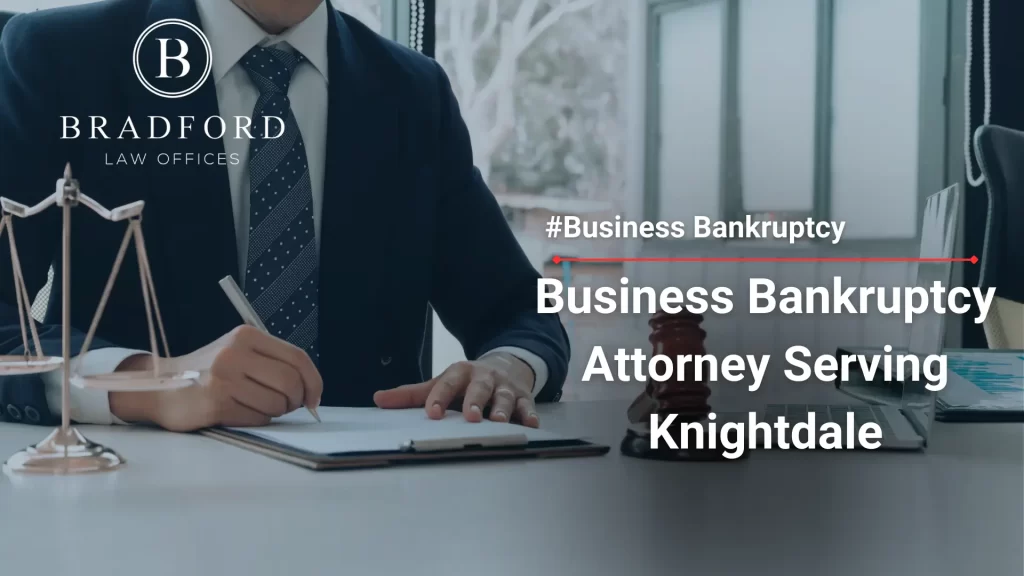 Being overwhelmed by debts and pestered by your creditors makes you feel miserable. Whether your debts are personal or related to a business, it’s easy to feel hopeless when the amount you owe keeps growing and there seems to be no way out. But the law offers many families a way out of this situation: Bankruptcy. Through the bankruptcy process, you can have some or all of your debts removed, freeing you from stress and giving you a chance to start over financially.
Being overwhelmed by debts and pestered by your creditors makes you feel miserable. Whether your debts are personal or related to a business, it’s easy to feel hopeless when the amount you owe keeps growing and there seems to be no way out. But the law offers many families a way out of this situation: Bankruptcy. Through the bankruptcy process, you can have some or all of your debts removed, freeing you from stress and giving you a chance to start over financially.
Bankruptcy can be a complicated and cumbersome process, though, so it’s a good idea to get help from an experienced bankruptcy lawyer. The Knightdale business bankruptcy attorneys of Bradford Law Offices have been helping people regain their financial footing for more than 25 years. We’ve helped more than 3,000 clients with bankruptcy and other financial matters, and founding attorney Danny Bradford is a member of the National Association of Consumer Bankruptcy Attorneys. If you want to know more about whether bankruptcy might be an option for you, call us today at (919) 758-8879 or visit our contact page.
Why You Need a Knightdale Business Bankruptcy Attorney
Though there’s no legal requirement saying you have to have an attorney when you file for bankruptcy, it’s a bad idea to go without one. Here are a few reasons why:
- Choosing the right bankruptcy process. There are many different ways you can file for bankruptcy, but it’s important to choose the right one for your situation. For example, some types of bankruptcy cases are designed for families and individuals, while others are designed for businesses. You need to make sure you choose a bankruptcy plan that fits your finances and can get as much of your debts discharged as possible. A bankruptcy lawyer will know what all the different rules are and can help you make the right choice.
- Filing your application. Unsurprisingly, bankruptcy cases require a lot of documentation and paperwork. You’ll need records of your earnings, assets, debts, tax returns, and more. You’ll also need to fill out a bunch of court forms. It’s absolutely crucial that these forms are filled out correctly, otherwise, your claim could be denied or you could run into other legal trouble. Bankruptcy attorneys have experience in these matters and can review all your documents before you submit them to the court.
- Representing you in court hearings. Most bankruptcy cases require you to appear in court at least once, and usually more than once. At a minimum, there will be a hearing where your creditors will get to make their case about what should be done about your debts. Anytime you attend a court hearing in your bankruptcy case, you want a lawyer at your side to make sure your interests are protected and you don’t make any mistakes that could get you in trouble.
Chapter 7 vs. Chapter 13 Bankruptcy in North Carolina
If you’re an individual or family filing for bankruptcy in North Carolina, you’ll most likely be filing your petition under Chapter 7 or Chapter 13 of the federal Bankruptcy Code. It’s important to know the differences between a Chapter 7 bankruptcy and a Chapter 13 bankruptcy so you can choose the right option for your situation. This is also something a bankruptcy attorney can help with.
Here’s a brief breakdown of the differences between Chapter 7 and Chapter 13 bankruptcy cases:
Chapter 7
Filing for bankruptcy under Chapter 7 is sometimes referred to as a “liquidation bankruptcy.” If your bankruptcy petition is approved by the courts, most of your assets that are not exempt under bankruptcy law will be sold (aka “liquidated”) so you can pay your creditors at least a portion of what you owe. Once your non-exempt assets have been sold, the court will appoint a bankruptcy trustee to oversee your case and pay back your creditors with whatever money you got for selling those assets.
Chapter 7 bankruptcy is the best for those who have no reasonable way to pay back their debts. Creditors don’t like Chapter 7 bankruptcy cases because they nearly always get less than the full value of what they’re owed. After your non-exempt assets have been sold, any remaining eligible debts you have are discharged by the bankruptcy court. This gives you a clean slate, though not without certain costs.
Chapter 13
Filing for bankruptcy under Chapter 13 is frequently referred to as a “reorganization bankruptcy.” Chapter 13 bankruptcy cases work a bit differently because you get to keep a greater portion of your assets if your court petition is approved. In return, you come up with a repayment plan that must be approved by the judge overseeing your case. You’ll need to show how you can use your existing income and available assets to pay back your debts within three to five years.
 Once you’ve developed your payment plan and it’s been approved by the courts, you’ll begin making payments to a bankruptcy trustee, who will then pay back your creditors using those funds. Assuming you meet the terms of your payment plan by the specified date, your remaining eligible debts can be discharged. It’s important to make every single payment on time if your Chapter 13 bankruptcy petition is approved. Otherwise, your case might be thrown out, and you’ll be left at the mercy of your creditors.
Once you’ve developed your payment plan and it’s been approved by the courts, you’ll begin making payments to a bankruptcy trustee, who will then pay back your creditors using those funds. Assuming you meet the terms of your payment plan by the specified date, your remaining eligible debts can be discharged. It’s important to make every single payment on time if your Chapter 13 bankruptcy petition is approved. Otherwise, your case might be thrown out, and you’ll be left at the mercy of your creditors.
There are trade-offs to both of these options if you’re filing for bankruptcy. You have to meet certain income restrictions to be eligible for Chapter 7 bankruptcy and will keep fewer of your assets, but more of your debts will be wiped out if your petition is approved. A repayment plan under Chapter 13 can work if you have the financial means to make the plan viable, but the penalties for failing to make your payments on time can be steep. Finding the right option for your situation is one of the key jobs of a bankruptcy lawyer.
Contact a Knightdale Business Bankruptcy Attorney Today
Filing for bankruptcy is often the first step to regaining your financial freedom and alleviating the headaches that come with overwhelming debts. For more information on how Bradford Law Offices can help with your bankruptcy case, call (919) 758-8879 or visit our contact page to speak to a Knightdale business bankruptcy attorney.